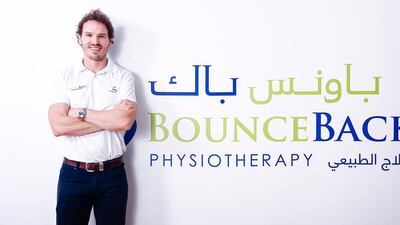Getting excited about a new fitness regime is the first step to a healthier life – but overtraining, ignoring recovery time and poor nutrition could be doing more harm than good.
According to Tim Fletcher, a senior physiotherapist at BounceBack Physiotherapy in Abu Dhabi, many “fitness newbies” are vulnerable to lower-back and knee pain when they jump into a high-intensity activity.
“A lot of people have had a huge surge of motivation and exercise every day for five days, not having exercised that way in the past six months,” says Fletcher.
“The overtraining can lead to injury, so people need to start slow.”
He says boot camp-style workouts can take a toll on an individual who hasn’t been that active in the past.
“Boot camps are quite popular here, and the participant goes from nothing to very high-intensity workouts,” he adds. “The body takes a while to cope with those demands.
“The main injury we see is lower-back pain from a high amount of compression from the sprints, lunges and box jumps – things that the spine is not used to. There also tend to be lower-limb injuries.”
While boot camps are a good way to kick-start an active lifestyle, Fletcher says recovery time must not be ignored.
“Recovery time is just as important as the session itself,” he says. “Try to leave at least 24 hours until your next session. I wouldn’t suggest this regime if people are travelling a lot or have stressful jobs that don’t give them time to include a massage, stretching or even a light swim.”
In addition, any sort of nagging discomfort must be flagged.
“When you start a new programme, a certain amount of discomfort and muscle fatigue and burn is expected,” says Fletcher. “But shooting pain or numbness is a cause for concern and must not be ignored.”
Nutrition also plays an essential role in preventing injuries.
“The body needs fuel and we advise eating slightly less but more regularly,” says Fletcher. “It is best to eat two-thirds of a meal about five to six times a day. Abstaining from a meal is incorrect and the body doesn’t respond to that.”
aahmed@thenational.ae

